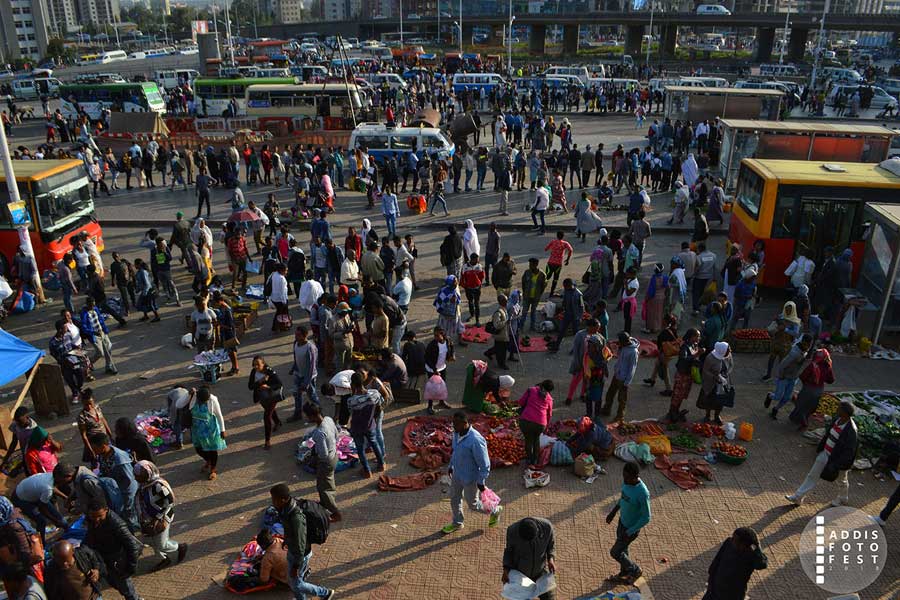
Radar | Oct 01,2022
The government has started the process of procuring 40,000tn of benzene in response to the potential shortages that could be caused by the disruptions of the Novel Coronavirus (COVID-19) pandemic.
The Ethiopian Petroleum Supply Enterprise signed a deal two weeks ago for the supply of the oil from the Abu Dhabi National Oil Company (ADNOC), a state-owned oil company of the United Arab Emirates. The Enterprise is negotiating with the company to ensure the delivery of the benzene by the end of May.
Although the order was made two weeks ago, the cost of fuel is going to be determined at the spot price when the fuel is procured, according to Tadesse Hailemariam, CEO of the Enterprise.
The estimated spot price for cargoes of 95 RON, a premium gasoline standard, for loading in Fujairah, UAE was 20.68 dollars a barrel on Thursday, April 30, 2020, according to S&P Global Platts, a provider of commodity data. Based on this price, Ethiopia would be paying approximately seven million dollars before shipping costs.
Global oil prices are currently at 20-year lows, pressured by both a substantial fall in demand due to COVID-19 and a supply glut caused by a disagreement between Russia and Saudi Arabia, two of the top three producers in the world.
There are certain conditions in which if there is a five percent drop in the Brent or Platts index on the global market, then there will be a contract revision, according to Serkalem Geberkirstos (PhD), the former CEO of Dalol Oil currently working as a consultant.
"For Ethiopia, we usually use Middle Eastern producers such as Kuwait or Saudi Arabia to estimate the price," he added. "Since there is a significant drop in the global market, the government should consider bargaining for lower prices of oil."
“There is no special procurement for this," Tadesse said. "It’s made as an additional purchase within the existing lines of supply to the country."
The decision to procure the fuel was passed through the ministries of Finance and Trade & Industry after agreeing that it would provide security for the public in the event of a worst-case scenario.
The board of the Ethiopian Petroleum Enterprise, the committee of the National Bank of Ethiopia, and the ministries, have passed directives to increase the stock of essential commodities, including petroleum, according to Eshete Asfaw, state minister for Trade & Industry.
"We called upon the Enterprise to increase reserves of benzene, diesel and jet oil," Eshete told Fortune.
The Enterprise has been importing around nine million litres a day but has now increased that amount to 10 to 11 million litres a day upon the orders of the board.
In early April, the Ministry of Trade & Industry issued an expression of interest to multinational companies for the importation of basic commodities and industrial inputs. The supply includes 18.1 million quintals of wheat, 104.3 million litres of edible oil, 3.2 million quintals of sugar and 1.7 million quintals of rice.
The selected multinational companies will be awarded a two-year contract to supply the commodities.
Beginning last month, the country experienced a shortage of fuel in the capital after Sudan closed its borders on March 16, blocking a significant source of imported benzene.
The country has been importing 450,000lt of benzene through the corridor on a daily basis, which passes through the town of Metema, requiring six to ten trucks. In contrast, Ethiopia imports 2.2 million litres to 2.4 million litres of benzene a day through the aisle of Djibouti.
The global outbreak of COVID-19 is causing fear and uncertainty, leading consumers to panic and buy as much as they can afford. Fuel stations have also been accused of hoarding oil. In the first half of the fiscal year, the country has sourced one million tonnes of petroleum products at a cost of 16.7 billion Br, a 3.4pc reduction achieved due to the decline in international oil prices.
The import of the petroleum products in the first half of the fiscal year showed an 11.4pc expansion this year following an 8.2pc increase in the use of gas oil, a 32.9pc increase in demand for regular gasoline, and a 109.6pc increase in demand for fuel oil. Out of all petroleum imports, gas oil accounted for 61.1pc, followed by jet fuel at 20.8pc, regular gas at 15.8pc and fuel oil at 2.3pc.
Ethiopia has 13 reserve depots throughout the country. Awash has the largest reserve. Currently, Ethiopia can hold on for 36 days without fuel. After the Dukem reserve depot is completed, the country will have a reserve capacity that could last for 60 days.
PUBLISHED ON
May 02,2020 [ VOL
21 , NO
1044]

Radar | Oct 01,2022

Radar | May 11,2019

Viewpoints | Jun 25,2022

View From Arada | Jul 24,2021

Sunday with Eden | May 18,2019

Commentaries | Sep 02,2023

Editorial | Feb 16,2019

Fortune News | May 18,2019

Radar | Sep 29,2024

Radar | Jul 06,2025

Dec 22 , 2024 . By TIZITA SHEWAFERAW
Charged with transforming colossal state-owned enterprises into modern and competitiv...

Aug 18 , 2024 . By AKSAH ITALO
Although predictable Yonas Zerihun's job in the ride-hailing service is not immune to...

Jul 28 , 2024 . By TIZITA SHEWAFERAW
Unhabitual, perhaps too many, Samuel Gebreyohannes, 38, used to occasionally enjoy a couple of beers at breakfast. However, he recently swit...

Jul 13 , 2024 . By AKSAH ITALO
Investors who rely on tractors, trucks, and field vehicles for commuting, transporting commodities, and f...

Oct 18 , 2025
The political establishment, notably the ruling party and its top brass, has become p...

Oct 11 , 2025
Ladislas Farago, a roving Associated Press (AP) correspondent, arrived in Ethiopia in...

Oct 4 , 2025
Eyob Tekalegn (PhD) had been in the Governor's chair for only weeks when, on Septembe...

Sep 27 , 2025
Four years into an experiment with “shock therapy” in education, the national moo...